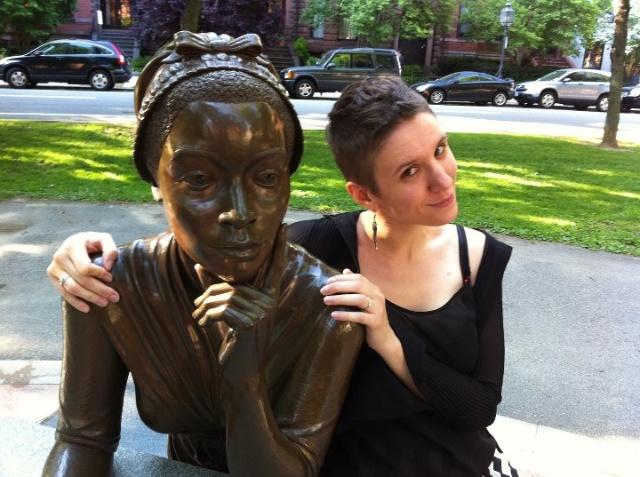Senior English major Carissa Halston’s second book, “The Mere Weight of Words,” will be in bookstores soon. The Mass Media spoke with Halston about her upcoming novella, her writing process, and the difficulties of being a novelist and a student.
MM: How do you negotiate between your career as an undergraduate student while publishing your second book?
CH: It’s a lot of juggling because I sent out the manuscript in June [2010]. Then I started classes here. So, I sent out my work the same month that I started classes. It was accepted the following February.
It’s nerve wracking. When I send out submissions, I essentially have to forget about them or I would drive myself insane. What’s really nice is there is always another project to work on.
This is the hardest semester of all the semesters since I’ve known the book was going to come out because this is my last semester. I’m applying to graduate school right now and waiting to hear back. I’m trying to schedule readings and book-signings and events for June right now. And I’m taking five classes. And I’m working.
Going to school is like having a full time job, except instead of going home at night and leaving work at work, you go home at night and you continue to work. During my first semester here, I was working on the first draft of a new novel. I would go to class, come home and do my homework until 10 or 11 at night and then write. The shorter things that I’ve written since [moving forward with publication and continuing towards graduation] have been really short. Luckily, most have found homes.
And I’ve had other work published since [The Mere Weight of Words] has been accepted: I’ve had short stories published. That’s satisfying because it means that, as a writer, you are still moving in the right direction.
Otherwise, it’s really easy for you to convince yourself that everything you’ve written is worth nothing. You can think yourself into a hole, and other people will help you do it.
MM: Can you give some advice to aspiring student-writers?
CH: Finish what you start. Do not write a story that you don’t care about. It’s much more interesting when you have some sort of vested interest in what your character does.
Every writer has influences, even if they’re unaware of them. No book is written by a single person. It is the influence of your parents, the influence of your teachers, the influence of your enemies – whether you want to admit that or not. How all of that affects you leads to what you make.
Don’t write to impress someone. Write something that you are committed to long term. Writing is not something that you do in the morning and then think: ‘Ah, it’s done.’ It’s all about revision. You need to learn to love revision.
So, those three things: Finish what you start. Learn to love revision. Don’t write a story that isn’t in you.
Halston’s newest work stems from a long-time passion for linguistics. The protagonist, a lexicographer, surrenders her love of phonetics after suffering from facial palsy, which renders her unable to continue her work.
Halston writes whenever she finds time to be alone in her North End home. She lives with her husband, Randolph.





















































